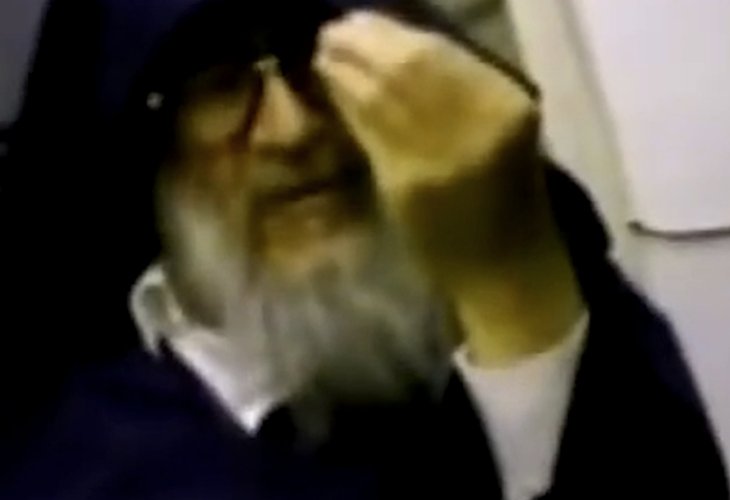Torah Personalities
A Life of Hidden Fire: Remembering Rabbi Elazar Abuchatzeira
A master of mysticism and self-sacrifice, the late Baba Elazar lived in holiness and humility—his tragic death stunned a nation and stirred a call for compassion

A Legacy Rooted in Holiness and Restraint
The late Rabbi Elazar Abuchatzeira, widely known as “Baba Elazar,” was a revered Sephardic rabbi and Kabbalist who descended from one of the most spiritually distinguished families in the Jewish world. The son of Rabbi Meir Abuchatzeira and grandson of the legendary Baba Sali, Rabbi Elazar carried forward his family’s legacy of asceticism, mysticism, and unwavering devotion to Torah.
He was tragically murdered on the 27th of Tammuz, 2011, by someone who had come seeking his guidance. His sudden death, now more than a decade ago, sent shockwaves across every segment of Israeli society.
Like his father and grandfather, Rabbi Elazar was known for his deep knowledge of the hidden dimension of Torah and the mystical traditions of Kabbalah. Although he received thousands of visitors in his modest study in Be’er Sheva, very few ever saw his face. He was fiercely meticulous about shemirat ha’einayim (guarding one’s eyes), his gaze always lowered, his body cloaked in a black robe that concealed most of his face.
Despite the wealth and honor offered to him by admirers and followers, he lived a life of spiritual discipline. Jewish sources teach that those who guard their eyes merit a supernatural memory. So it was with Baba Elazar, whose encyclopedic knowledge encompassed both the revealed and hidden aspects of Torah, and whose recall of halachic (Jewish legal) detail and personal encounters alike was nothing short of astonishing. Even decades after a brief meeting, he would remember names, faces, and conversations with perfect clarity.
A Life of Ascetic Devotion
Those close to him recall that for five consecutive years, Rabbi Elazar fasted from the end of Shabbat until the following Shabbat and abstained entirely from food and drink. His teeth darkened from the prolonged fasts. For seven straight years, he observed a ta’anit dibbur (fast of speech), refraining from all secular conversation and speaking only when necessary, and only in holiness.
These were not merely spiritual feats; they were expressions of a soul driven to elevate the world. Even in his most intense personal restrictions, his focus remained entirely on helping others.
He refused to be photographed. On the rare occasion he agreed, the photos mysteriously burned soon afterward. Today, almost no video footage or images of him remain. He lived entirely detached from the vanities of this world.
After his death, leading rabbis across Israel called on the public to refine their character traits. The late Rabbi Ovadia Yosef was overcome with grief. “This righteous man gave his life to the Jewish people,” he said. “Whoever faced trouble came to him. He spent his life immersed in Torah and acts of kindness.”
When Rabbi Aharon Leib Shteinman heard of the murder, he sat silently, visibly shaken. “The pain was so deep,” his close students recalled, “that he couldn’t speak. He simply shook his head, repeating over and over, ‘This tragedy is incomprehensible.’” Later that day, he told a grandson: “When there’s a breakdown in bein adam le’chaveiro (interpersonal relationships), no one knows how far it can go. We are witnessing a spiritual crisis the likes of which we haven’t seen in generations. We must strengthen our commitment to how we treat one another.”
Rabbi Nissim Karelitz and Rabbi Shmuel Auerbach likewise urged their students to increase their study of mussar (ethical refinement) and deepen their sensitivity toward others.
A Martyr’s Death, a National Wake-Up Call
For the Abuchatzeira family, the tragic nature of Rabbi Elazar’s passing was not unfamiliar. A century earlier, while still in Morocco, the governor of the province sought to execute the Jewish population. Rabbi David Abuchatzeira, grandson of Rabbi Yaakov Abuchatzeira and older brother of the Baba Sali and Baba Chaki, sacrificed himself to save his community, fulfilling the mitzvah of kiddush Hashem (sanctification of God's name) with his death.
In that light, many viewed Baba Elazar’s passing as an atonement for the generation, a soul offered in place of a harsh decree that had been poised to descend upon the Jewish people. Perhaps his death shielded us from a far greater tragedy.

